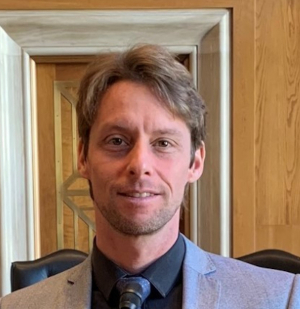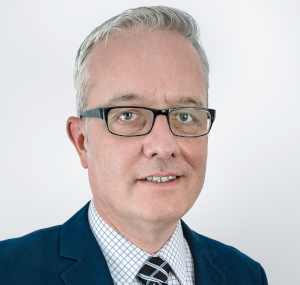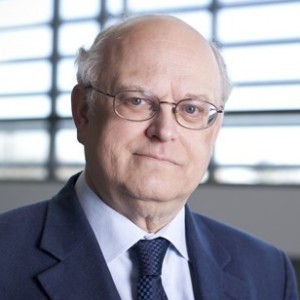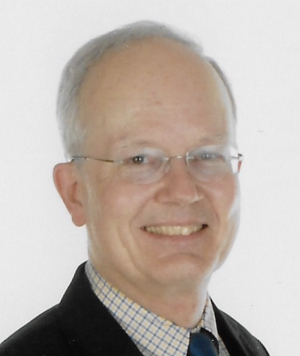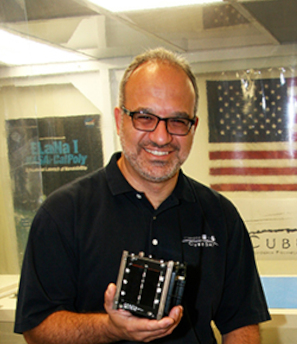Nicolas Maubert
Nicolas Maubert is the Representative of CNES (French Space Agency) and Space Counselor of the French Embassy in the United States. He has 20 years of professional experience in multiple space organizations within the industry and government, in various international environments (Europe, South and North America). He previously held leadership roles in space program management, system engineering and operations, and has been deeply involved in the French space policy consolidation. He has served notably as spacecraft and launch operation manager for CNES at the European Spaceport in French Guiana, system manager for the Galileo navigation program within the European Space Agency in the Netherlands, or satellite and ground mission segment program manager for Thales Alenia Space in Italy and France.
Read MoreSylvie Espinasse
Sylvie Espinasse is the head of the European Space Agency (ESA) Office in Washington since January 2020. She represents ESA in the United States and Canada, and she supports the implementation of the Agency’s cooperation with these two countries with a particular focus on NASA, NOAA and CSA, and the identification of new areas of potential collaboration. This involves establishing a network with U.S and Canadian institutional, academic and industrial entities and monitoring of the North American space policy and industry. Prior to this position she was responsible of the Coordination Office of the ESA directorate of Human and Robotic Exploration and executive secretary of the ESA Programme Board for Human spaceflight, Microgravity and Exploration. She joined ESA in 2009 as an administrator in the Directorate of Human Space Flight. From 2000 to 2009, she was a project manager at the Italian Space Agency (ASI), in charge of the Italian participation in some ESA and NASA science and exploration missions and she was part of the Italian delegation in ESA. She started her professional career in the private sector in the field of applied research and environmental monitoring systems. She has a PhD in Geophysics from the University Joseph Fourier in Grenoble (France).
Read MorePatricia Cooper
Patricia Cooper is a leading expert on satellite communications, regulation and space policy, and is the founder of the space consultancy, Constellation Advisory, LLC. For six years, Cooper served as the Vice President of Satellite Government Affairs at Space Exploration Technologies Corp. (SpaceX). In this role, Patricia founded the regulatory and policy efforts to enable…
Read MoreU.S. Representative Don Beyer, D-VA
Don Beyer is serving his fourth term as the U.S. Representative from Virginia’s 8th District. He serves on the House Committees on Ways & Means and Science, Space & Technology. He is the Chair of the Joint Economic Committee and the Chair of House Space & Aeronautics Subcommittee. He has been a Northern Virginia businessman…
Read MoreDr. Alberto Conti
Dr. Alberto Conti is the director for New Business and Innovative Solutions of the Civil Space strategic business unit at Ball Aerospace. He is responsible for managing new business activities for NASA, NOAA and other civilian U.S. government agencies as well as for academia and other science organizations. Dr. Conti joined Ball Aerospace in September…
Read MoreDr. Martin Smith
Dr. Martin Smith is the Manager of Research and Development at Bubble Technology Industries (BTI) in Chalk River, ON. BTI is globally recognized for its expertise in the fields of radiation and explosives detection. With a multi-disciplinary staff of over 50 people, the company provides products, services, and contract R&D for over 400 customers in 25 countries, with key clients including the US Department of Homeland Security, US Department of Energy, the Canadian Department of National Defence, the Canadian Space Agency (CSA) and its international partners, multiple law enforcement agencies, and a wide range of other Canadian and NATO-country agencies.
Read MoreDr. Harry Ing
Dr. Harry Ing is the founder and President of Bubble Technology Industries (BTI). Started in 1988 and located in Chalk River, Canada, BTI is globally recognized for its expertise in the fields of radiation and explosives detection. With a multi-disciplinary staff of over 50 people, the company provides products, services, and contract R&D for over 400 customers in 25 countries, with key clients including the US Department of Homeland Security, US Department of Energy, the Canadian Department of National Defence, the Canadian Space Agency (CSA) and its international partners, multiple law enforcement agencies, and a wide range of other Canadian and NATO-country agencies. The company’s innovative technologies have flown on over two dozen space missions and have been used to secure high-profile events, including US Presidential inaugurations, visits by the Pope, global political summits, multiple Super Bowls, the World Series, and the Olympics.
Read MoreDr. Thomas Sterling
Thomas Sterling is a Full Professor of Intelligent Systems Engineering at Indiana University (IU) serving as Director of the AI Computing Systems Laboratory at IU’s Luddy School of Informatics, Computing, and Engineering. Since receiving his Ph.D from MIT as a Hertz Fellow in 1984, Dr. Sterling has engaged in applied research in parallel computing system structures, semantics, and operation in industry, government labs, and academia. Professional affiliations have included Harris Corp., IDA Supercomputing Research Center, NASA (GSFC, JPL), Un. of Maryland, Caltech, and LSU. Dr. Sterling is best known as the “father of Beowulf” for his pioneering research in commodity/Linux cluster computing for which he shared the Gordon Bell Prize in 1997.
Read MoreDr. James Fischer
Jim Fischer first came to the Goddard Space Flight Center in 1971 through a cooperative work study program while an engineering undergraduate at North Carolina State University. He started full time at Goddard in 1974, hired into a group doing pioneering work in the, at that time, nonexistent field of massively parallel computing, and by 1983 was group lead. His group’s Massively Parallel Processor (manufactured under contract by Goodyear Aerospace Corporation and made operational at Goddard in 1985) and first Beowulf Linux cluster (assembled at Goddard in 1994) each led to major advances in how supercomputing was done worldwide and both are now in museum collections.
Read MoreDr. Jordi Puig-Suari
Dr. Jordi Puig-Suari graduated from Purdue University with a Bachelor of Science, a Master of Science and a PhD in aeronautical and astronautical engineering in 1988, 1990, and 1993, respectively. In 1993 he was a visiting assistant professor in the School of Aeronautics and Astronautics at Purdue. From 1994 to 1998, he was an Assistant Professor in the Mechanical and Aerospace Engineering at Arizona State University. In 1998, Dr. Puig-Suari joined the Aerospace Engineering Department at CalPoly, San Luis Obispo as an Associated Professor. He served as Chair of the Aerospace Engineering Department at Cal Poly from 2004 to 2008.
Read More